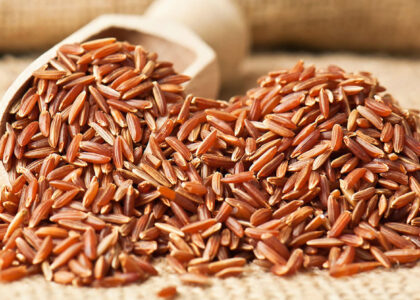Introduction:
Wild yam root, scientifically known as Dioscorea villosa, is a perennial plant native to North America. It has a long history of traditional use in herbal medicine, particularly for women’s health issues. Wild yam root is commonly consumed in various forms, such as capsules, extracts, and topical creams. In this comprehensive guide, we will delve into the health claims associated with wild yam root, explore potential side effects, and provide guidance on its safe and effective usage.
Health Claims:
Menopausal Symptom Relief:
One of the most well-known health claims surrounding wild yam root is its potential to alleviate menopausal symptoms. Some proponents suggest that compounds found in wild yam root, such as diosgenin, can mimic the effects of estrogen in the body, leading to reduced hot flashes, night sweats, and mood swings. However, scientific evidence supporting these claims is limited, and more research is needed to establish the effectiveness of wild yam root for menopausal symptom relief.
Hormonal Balance:
Wild yam root is often touted for its ability to promote hormonal balance in both men and women. It is believed that the plant compounds present in wild yam root can help regulate hormone levels, particularly progesterone. However, while wild yam root contains diosgenin, which is a precursor to progesterone, it is important to note that the body cannot convert diosgenin into progesterone on its own. Therefore, the direct hormonal effects of wild yam root on the body are still under investigation.
Digestive Health:
Traditional medicine practices have utilized wild yam root to address digestive issues, such as stomach cramps, bloating, and irritable bowel syndrome (IBS). The root is believed to possess anti-inflammatory properties that may help soothe the digestive tract. Nevertheless, scientific studies investigating the specific effects of wild yam root on digestive health are limited, and further research is necessary to validate these claims.
Side Effects:
While wild yam root is generally considered safe for most individuals when taken in appropriate doses, some people may experience side effects. It is important to be aware of the following potential adverse reactions:
Gastrointestinal Distress:
In some cases, wild yam root may cause gastrointestinal discomfort, including nausea, vomiting, and diarrhea. If you experience any of these symptoms, it is advisable to discontinue use and consult a healthcare professional.
Allergic Reactions:
Allergic reactions to wild yam root are rare but possible. Signs of an allergic reaction may include itching, rash, hives, swelling, or difficulty breathing. If you observe any of these symptoms, seek immediate medical attention.
Hormonal Effects:
While wild yam root is sometimes promoted as a natural alternative to hormone replacement therapy, its direct effects on hormone levels are not well understood. It is crucial to consult with a qualified healthcare provider before using wild yam root, especially if you have a history of hormone-related conditions or are currently taking hormonal medications.
Usage Guidelines:
To ensure safe and effective use of wild yam root, consider the following guidelines:
Consult a Healthcare Professional:
Before incorporating wild yam root into your healthcare routine, it is essential to consult with a qualified healthcare professional, especially if you have any underlying medical conditions or are taking medications. They can provide personalized guidance based on your specific health needs.
Follow Recommended Dosages:
It is crucial to adhere to the recommended dosages provided on the product packaging or as directed by your healthcare provider. Avoid exceeding the suggested dose, as it may increase the risk of side effects.
Quality and Source:
When purchasing wild yam root products, opt for reputable brands that adhere to quality standards. Look for products that have undergone third-party testing to ensure purity and potency.
Considerations for Pregnancy and Breastfeeding:
Pregnant or breastfeeding individuals should exercise caution when using wild yam root. Limited research is available on its safety during these stages, so it is best to consult with a healthcare professional before use.
Potential Drug Interactions:
Wild yam root may interact with certain medications, including hormonal therapies, blood thinners, and anticoagulants. It is crucial to inform your healthcare provider about all the supplements and medications you are currently taking to avoid potential interactions.
Conclusion:
While wild yam root has a long history of traditional use and is commonly promoted for various health benefits, the scientific evidence supporting its claims remains limited. It is important to approach wild yam root with caution and consult with a healthcare professional before incorporating it into your wellness routine. By following recommended dosages and guidelines, you can make informed decisions regarding the usage of wild yam root for your individual health needs.
- Wild Yam Root: Health Claims, Side Effects, and Usage - July 18, 2023
- Boiled Egg Diet Review: Is It Healthy? Pros & Cons - July 18, 2023
- 3 Aqua Products Perfect for Your Next Staycation - June 26, 2023







